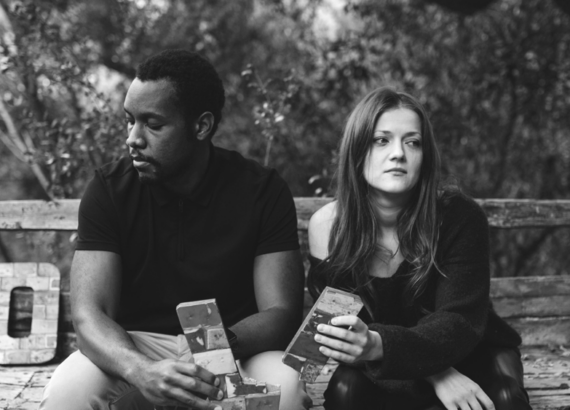5 DBT Informed Skills for the Holidays

The holiday season can be a mix of emotions. Dialectics, in DBT informed therapy, reminds us that more than one emotion can be true, or valid, at any given point. It is valid to be excited about the holiday season and at the same time feel stressed about the things that need to be done in a short amount of time. It is valid to enjoy and look forward to spending time with loved ones and at the same time feel frustrated by what can seem like the obligations of the season. It is valid to feel grateful and thankful while at the same time be experiencing grief of a lost loved one, the loss of a relationship, or another major life transition. Any combination of emotions around the holidays can be valid given your current circumstances.
With these different emotions in mind, I would like to share some DBT Informed Skills to help bring more balance to your life during the holiday season. DBT Informed Skills can help us to be more mindful, to regulate emotions, to tolerate distress and to have healthy interactions with others. Depending on your goals for the season, feel free to take what fits for you and leave the rest. Information on the skills is adapted from The DBT Skills Training Manual by Marsha Linehan (2015).

Participate
- The mindfulness skill, participate, encourages us to jump in and be involved in whatever we are doing. During the holiday season, participating could look like being fully present and engaged in holiday activities without being distracted by anxieties, hurts, tasks, or even our phone. If you find yourself becoming distracted by other things during a holiday activity, rather than feeling poorly about your efforts toward mindfulness, gently bring your attention back to the present and what you are doing and return to participating. Try participating in the activities that are most important to you this season.
One-Mindfully
- One-mindfully is a mindfulness skill that asks us to stop multitasking and focus our entire attention on one thing at a time. For example, during the holiday season, when you are decorating, decorate; when you are cooking, cook; when you are spending time with loved ones, be with loved ones. Try keeping your focus on one task at a time to enjoy what is important to you and to not become overwhelmed by the amount of things you need to do, or feel you “should” do.
Radical Acceptance
- Radical Acceptance is a distress tolerance skill that asks us to fully, completely accept our current reality as it is rather than spending our energy fighting against things we cannot change. During the holiday season, this could look like acceptance for the amount of time on the calendar and realizing we cannot do everything, or go to every place, and instead plan based on the time we do have. This skill could also look like acceptance that the holiday, or our relationships with family members, are not what we once hoped for them. Radical acceptance, by definition, is needed when things are not what we want, yet we cannot control them. Once we are able to choose acceptance, though difficult, we can decide how we want to move forward.
Cope Ahead
- The Cope Ahead emotion regulation skill is meant to be used when we know we may be going into a stressful or difficult situation. Rather than waiting until we are in a difficult situation, we go ahead and start strategies to help ourselves ahead of time. For example, if someone is nervous about traveling over the holidays, they would not wait to start practicing breathing and relaxation techniques until they are on the airplane or in the vehicle. Instead, the Cope Ahead skill would encourage them to begin these coping strategies before ever leaving their home. Another example could be anticipating difficult family interactions over the holidays and rather than waiting to cope while around those family members, taking care of yourself and using skills to prepare. This could look like practicing how you would respond to someone, or working to reduce vulnerabilities by trying not to be hungry, tired, or already frustrated before entering the situation.

Self-Soothe
- Self-soothe is a distress tolerance skill in DBT informed therapy. Distress tolerance skills are meant to help us to tolerate, or get through, difficult situations and high levels of emotion without making things worse. Making things worse could look like doing or saying something under a high level of stress that moves us away from, rather than towards, our goals. If parts of the holiday season are difficult for you, self-soothing using your senses could be a good addition to your self-care and coping skill routine. The skill asks you to focus on things that you find relaxing and soothing with each of your senses. These will look different for everyone but some examples are listening to a crackling fireplace, watching it snow, feeling comforted by a soft blanket or a pet, smelling a favorite candle, or enjoying a hot cup of cocoa or tea.
I wish you well during this time of year.
Reference
Linehan, M. (2015). DBT skills training manual (2nd ed.). The Guilford Press.




